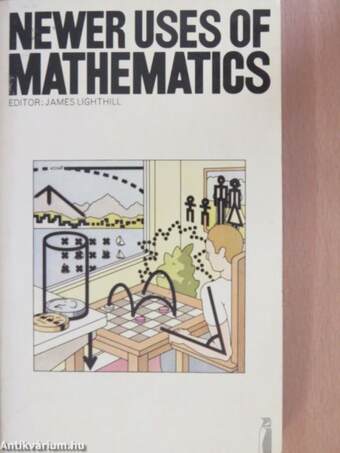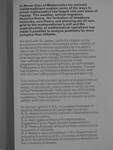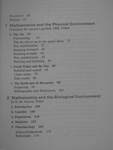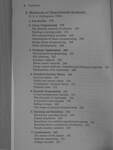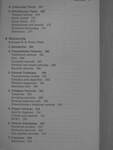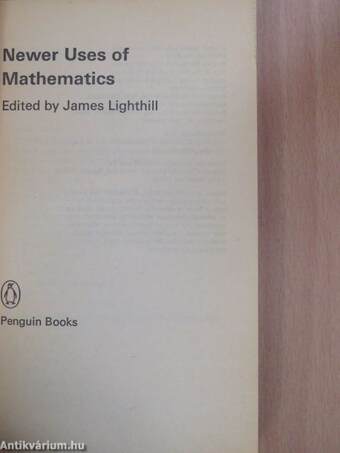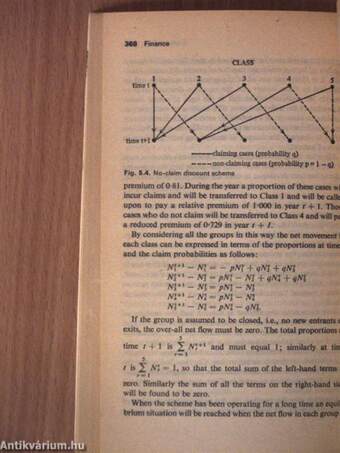1.076.527
kiadvánnyal nyújtjuk Magyarország legnagyobb antikvár könyv-kínálatát

VISSZA
A TETEJÉRE
JAVASLATOKÉszre-
vételek
Newer Uses of Mathematics
| Kiadó: | Penguin Books Ltd |
|---|---|
| Kiadás helye: | Harmondsworth |
| Kiadás éve: | |
| Kötés típusa: | Ragasztott papírkötés |
| Oldalszám: | 430 oldal |
| Sorozatcím: | Penguin Education |
| Kötetszám: | |
| Nyelv: | Angol |
| Méret: | 18 cm x 11 cm |
| ISBN: | 0-1408-0815-9 |
| Megjegyzés: | Fekete-fehér ábrákkal. |
naponta értesítjük a beérkező friss
kiadványokról
naponta értesítjük a beérkező friss
kiadványokról
Fülszöveg
In Newer Uses of Mathematics six eminent
mathematicians explain some of the ways in
which mathematics has forged into new areas of
inquiry. The weather, animal migration,
decision theory, the formation of telephone
networks, ruin theory and planning are all now
grist to the mathematician's mill and the
sophistication of mathematical operations has
made it possible to analyse problems far more
complex than hitherto.
We start with Sir James Lighthill's chapter on the
physical environment: the analysis of the weather, of
rainfall and the rational exploration for the earth's
resources. Dr Hiorns continues with the introduction
of mathematics into biology, including genetics,
pharmacology and zoology. Dr Hollingdale discusses
new methods of operational analysis, linear
programming and queueing theory, while Professor
Potts explains the complexities of networks. The last
two chapters, by Professors Beard and Rivett, deal
with the new mathematics of finance and... Tovább
Fülszöveg
In Newer Uses of Mathematics six eminent
mathematicians explain some of the ways in
which mathematics has forged into new areas of
inquiry. The weather, animal migration,
decision theory, the formation of telephone
networks, ruin theory and planning are all now
grist to the mathematician's mill and the
sophistication of mathematical operations has
made it possible to analyse problems far more
complex than hitherto.
We start with Sir James Lighthill's chapter on the
physical environment: the analysis of the weather, of
rainfall and the rational exploration for the earth's
resources. Dr Hiorns continues with the introduction
of mathematics into biology, including genetics,
pharmacology and zoology. Dr Hollingdale discusses
new methods of operational analysis, linear
programming and queueing theory, while Professor
Potts explains the complexities of networks. The last
two chapters, by Professors Beard and Rivett, deal
with the new mathematics of finance and planning.
'Itiscuriousthatasubjectas pure and passionless as
mathematics can have anything to say about that
messy, ill-structured, chancy world in which we live'
writes Professor Rivett, 'fortunately we will find that,
whenever we comprehend what was previously
mysterious, there is atthe centre of everything order,
pattern and common sense.'
Sir James Lighthill, F.R.S., is Lucasian Professor of
Applied Mathematics at Cambridge University.
R. W. Hiorns is University Lecturer in Biomathematics
at Oxford University.
S. H. Hollingdale is Head of the Mathematics
Department atthe Royal Aircraft Establishment.
R. B. Potts is Professor of Applied Mathematics at the
University of Adelaide.
R. E. Beard is Special Professor in the Department of
Industrial Economics atthe University of Nottingham.
B. H. P. Rivett is Professor of Operational Research at
the University of Sussex. Vissza
Témakörök
- Idegennyelv > Idegennyelvű könyvek > Angol > Egyéb
- Idegennyelv > Idegennyelvű könyvek > Angol > Természettudományok > Matematika
- Természettudomány > Matematika > Idegennyelvű
- Természettudomány > Matematika > Tankönyvek > Felsőfokú
- Természettudomány > Matematika > Társtudományok > Egyéb
- Tankönyvek, jegyzetek, szöveggyűjtemények > Természettudományok > Matematika
- Tankönyvek, jegyzetek, szöveggyűjtemények > Természettudományok > Matematika > Felsőfokú
Megvásárolható példányok
Nincs megvásárolható példány
A könyv összes megrendelhető példánya elfogyott. Ha kívánja, előjegyezheti a könyvet, és amint a könyv egy újabb példánya elérhető lesz, értesítjük.



